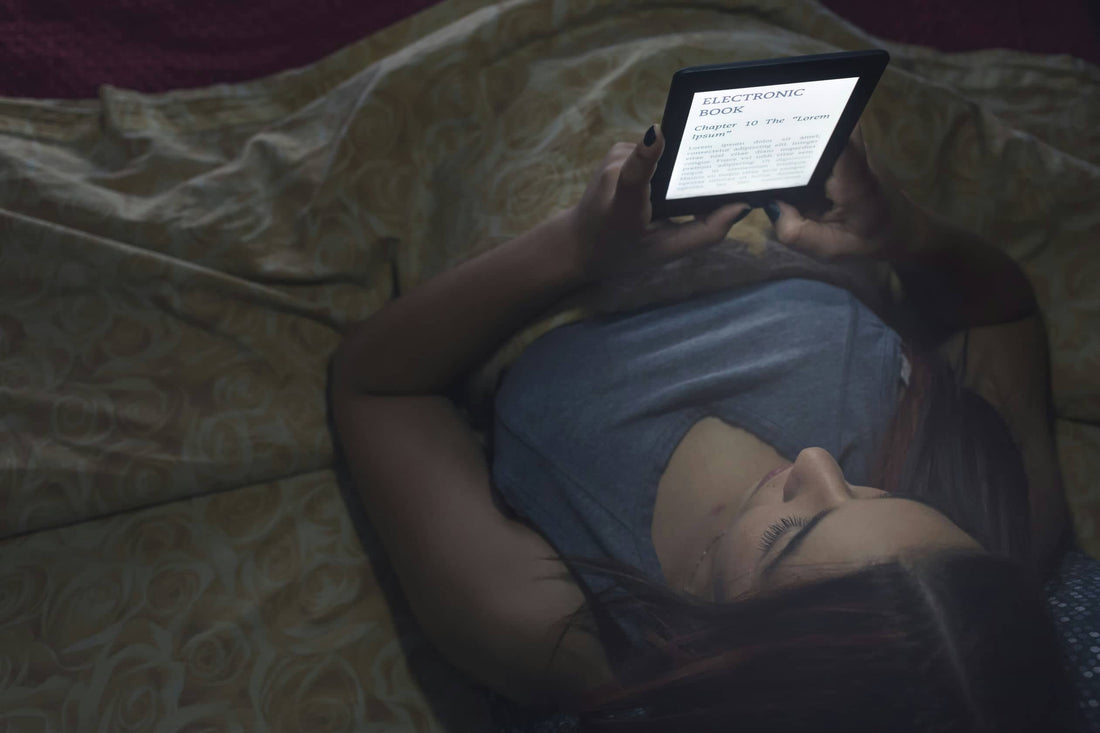If you’re one of the many book lovers that enjoys hopping into bed with the latest Kindle download after the lights are out, there is some bad news for you out of Harvard Medical School.
A study has been done on how light-emitting eBooks affect your sleep, and it doesn’t look like bedtime and eBooks are a good match after all. In fact, it appears that reading on a backlit device can cause not only poor sleep quality, but also lowered levels of alertness in the morning.
Researchers in the Harvard sleep medicine department tested the effects of reading an eBook on a light-emitting device for four hours before bed versus reading a print book for the same amount of time over two weeks with a group of twelve healthy adults.
Participants in the study stated that it took them a minimum of ten minutes longer to fall asleep when reading an eBook on a backlit device, as well as feeling less sleepy up to an hour longer than those reading a paper book.
Those that read eBooks also showed lower levels of melatonin (the hormone responsible for regulating sleep) and significantly less rapid eye movement (REM) sleep than those that read print books before bed. The lack of REM sleep due to reading a light-emitting eBook at bedtime caused study participants to take much longer to feel fully awake in the morning and to get to the same level of alertness than those that read traditional books.
Study researchers indicated that sleep quality has greatly declined amongst American adults over the past fifty years, and that there have been other studies that show up to 90% of the population is using electronic devices directly before bedtime, causing sleep experts to link use of cell phones, tablets, TVs, and other light-emitting electronics to sleep deprivation and the health issues that accompany it, such as diabetes and heart disease.
Sleep experts also pointed out that the use of electronic devices at bedtime has become much more prevalent amongst children and young adults, and they urge parents to restrict the use of such devices to no more than a couple of hours before bed, as the effects on learning and development are still being studied.
It was discovered that the light coming from electronic devices like the Kindle Fire or an iPad with an eBook reading application shines directly into readers eyes and causes sleep disturbances, and sleep experts recommend avoiding the use of those types of devices at least four hours before bedtime to ensure the highest quality of sleep possible.
The good news is that book lovers still have the ability to catch up on the latest bestsellers by making the switch to either an original Kindle device with no backlighting or a printed book, with ambient light from a bedside lamp. Reading in either way will not cause the disturbance to sleep that reading on a light-emitting device does, and will help you to find the happy medium of getting your reading fix while not causing you to lose out on sleep or wake up feeling groggy.
